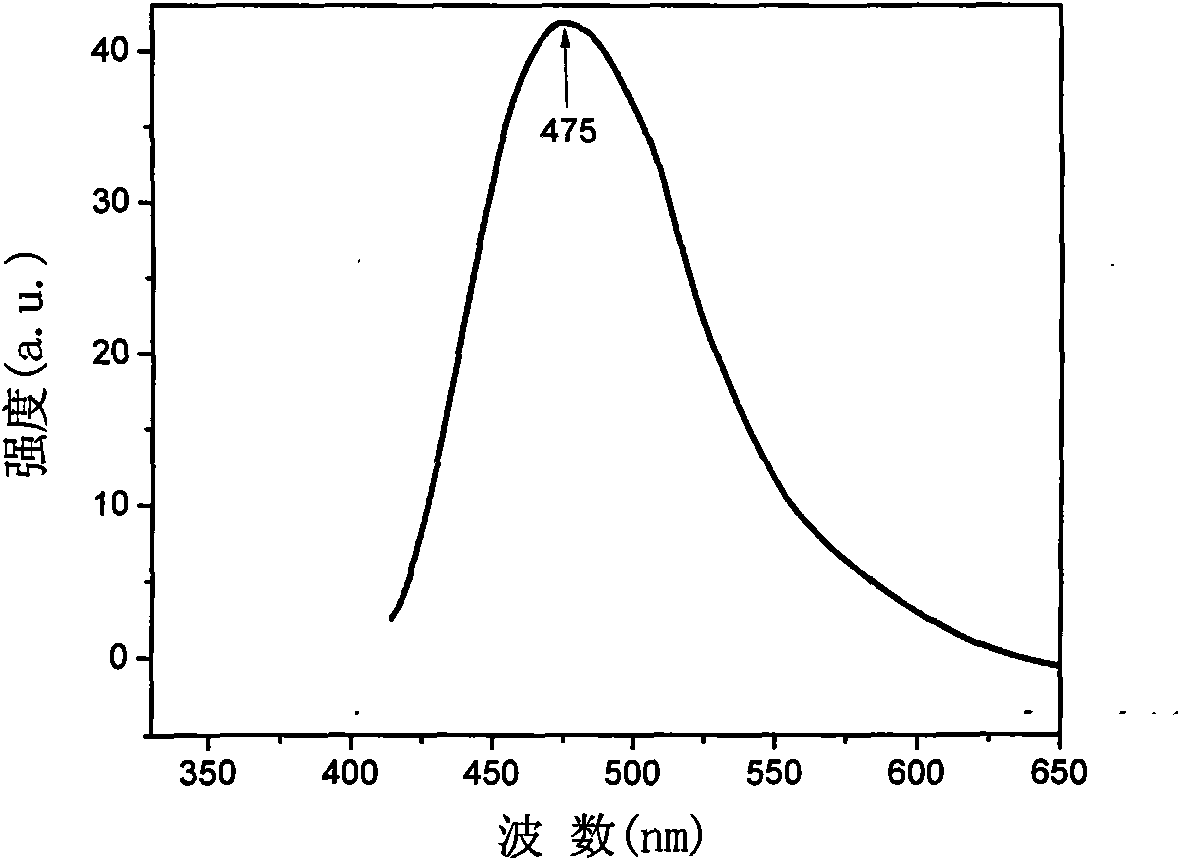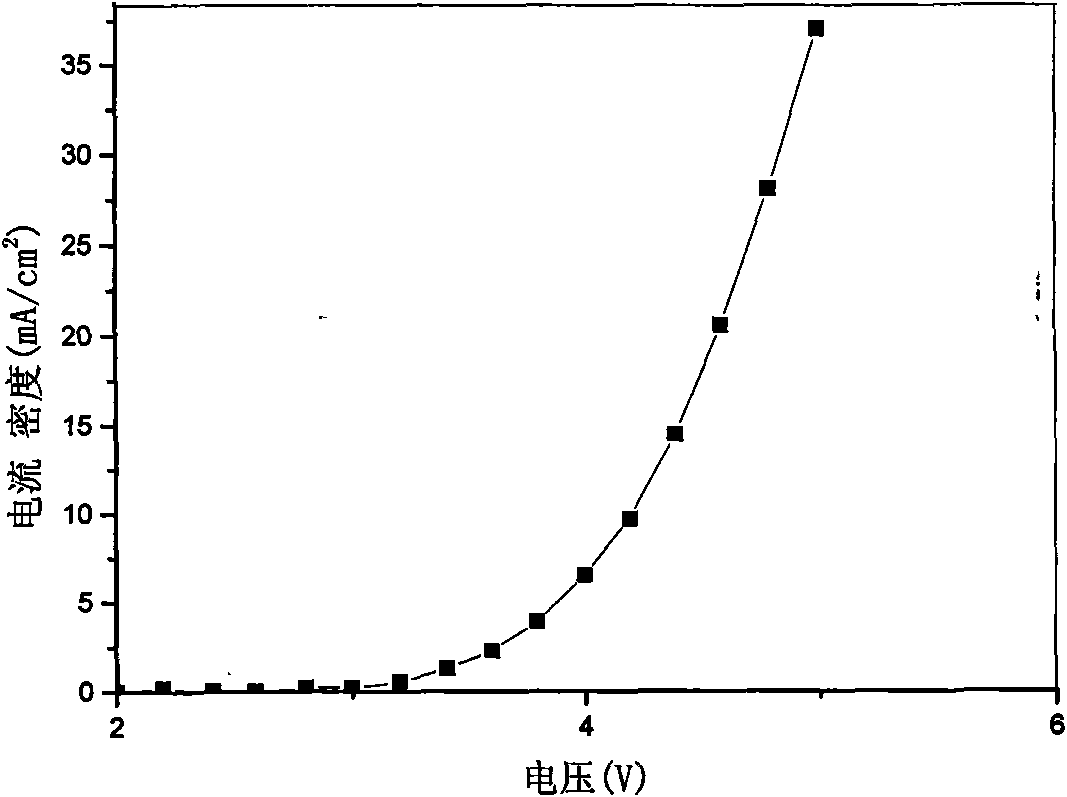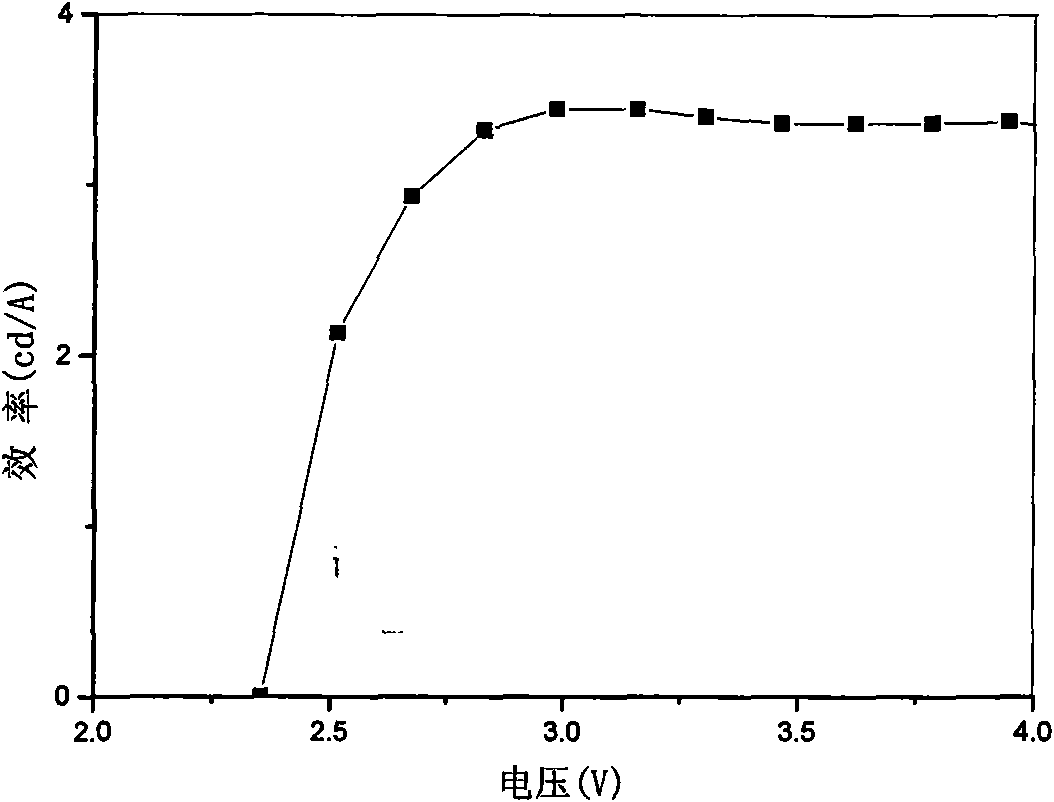Organic, inorganic hybrid green-light material having a network structure, preparation and use thereof
A technology of luminescent materials and green light, which is applied in the direction of luminescent materials, chemical instruments and methods, etc., can solve the problems of separation and purification not reaching the level of small molecules, uneven dispersion, uneven luminescence, etc. Simple, fast-response effects
- Summary
- Abstract
- Description
- Claims
- Application Information
AI Technical Summary
Problems solved by technology
Method used
Image
Examples
Embodiment 1
[0054] Sodium azide POSS (139.32 g 90 mmol), compound 2 (see reaction formula 1) (43.25 g 120 mmol), n-hexyne (39.36 g 480 mmol) and CuI (1.71 g 9 mmol) were added to a three-necked flask, under N 2 10 ml of DMF was added under the atmosphere, and the mixture was stirred at room temperature for 12 hours. After the initial product was filtered, it was successively filtered with CHCl. 3 , MeOH, H 2 O, THF, Et 2 O wash and vacuum dry at 40°C for 12 hours. The molecular formula of the product is: (C 30 Si 2 N 8 O 2 H 28 ) 12 (C 9 SiN 3 OH 18 ) 48 (Si 8 O 12 ) 9 , the yield is 92%, the luminescence peak wavelength: 540nm.
[0055] Chemical reaction formula 1:
[0056]
Embodiment 2
[0058] Vinyl POSS (56.97g 90mmol), compound 2 (see Reaction Scheme 2) (45.17g 120mmol), 1-mercaptobutane (43.2g 480mmol) and CuI (1.71g 9mmol) were added to a three-necked flask, and the mixture was heated under N 2 10 ml of DMF was added under the atmosphere, and the mixture was stirred at room temperature for 12 hours. After the initial product was filtered, it was successively filtered with CHCl. 3 , MeOH, H 2 O, THF, Et 2 O wash and vacuum dry at 40°C for 12 hours. The molecular formula of the product is: (C 20 S 2 N 2 O 2 H 12 ) 12 (C 4 SH 10 ) 48 (Si 8 O 12 ) 9 , the yield is 92%, the luminescence peak wavelength: 553nm.
[0059] Chemical reaction formula 2:
[0060]
Embodiment 3
[0062] Sodium azide POSS (139.32g 90mmol), compound 2 (see Reaction formula 3) (43.25g 120mmol) and CuI (1.71g 9mmol) were added to a three-necked flask, under N 2 10 ml of DMF was added under the atmosphere, and the mixture was stirred at room temperature for 12 hours. Then, n-hexyne (39.36 g, 480 mmol) was added, and the reaction was carried out under the same conditions for 12 hours. After the initial product was filtered, it was successively filtered with CHCl. 3 , MeOH, H 2 O, THF, Et 2 O wash and vacuum dry at 40°C for 12 hours. The molecular formula of the product is: (C 30 Si 2 N 8 O 2 H 28 ) 12 (C 9 SiN 3 OH 18 ) 48 (Si 8 O 12 ) 9 , the yield is 92%, the luminescence peak wavelength: 540nm.
[0063] Chemical reaction formula 3:
[0064]
PUM
 Login to View More
Login to View More Abstract
Description
Claims
Application Information
 Login to View More
Login to View More - R&D
- Intellectual Property
- Life Sciences
- Materials
- Tech Scout
- Unparalleled Data Quality
- Higher Quality Content
- 60% Fewer Hallucinations
Browse by: Latest US Patents, China's latest patents, Technical Efficacy Thesaurus, Application Domain, Technology Topic, Popular Technical Reports.
© 2025 PatSnap. All rights reserved.Legal|Privacy policy|Modern Slavery Act Transparency Statement|Sitemap|About US| Contact US: help@patsnap.com



